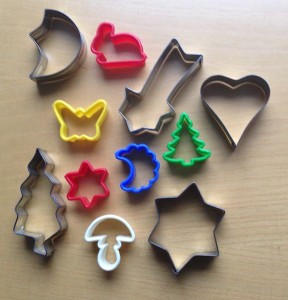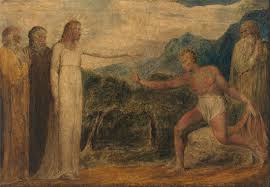Sue Monk Kidd tackled midlife transition in her 1990 classic When The Heart Waits: Spiritual Direction for Life’s Sacred Questions. I’m blogging my way through the book. (Click here to read previous installments in this series.) Monk Kidd’s gentle observations have been helpful to many facing their own emotional and spiritual changes at this life stage.
Chapter 5 is entitled “Letting Go”*. She notes most of us enter transition with a good measure of ambivalence, citing the process of metamorphosis as an illustration:
…Caterpillars don’t yield themselves to the cocoon at the same rate. When the moment to spin the chrysalis arrives, some of them actually resist and cling to their larval life. They put off entering the cocoon until the following spring, postponing their transformation a year or more. This state of clinging has a name. It’s called the ‘diapause.’
I have a grandson who will be twelve next month. One moment, he’s still a young boy. The next, he’s a teen. The cycling betwixt the two (remember how bewildering it was to enter adolescence?) reminds me very much of what it is like to enter midlife. Time and our own physiological changes within it are pulling us forward, but we fight to return to what we know. We’re clinging like a rebellious larvae to our own diapause. The effort that goes into this clinging can look like doing more of whatever has been successful for us up to this point. If our work has provided meaning and structure to our first-half life, then perhaps we work harder, even if we sense we’re being nudged toward a change of focus in our career – or life. Wrestling through this process is a necessary part of the journey. But at some point, relinquishment at a deep level must come. That letting go can be pretty darn terrifying. Monk Kidd observed:
The opposite of courage isn’t only fear but security.
Our struggle to hold on to the familiar must end in letting go into the disorienting darkness of the unknown. Only then, often with excruciatingly gradual realization, will we discover that we are being held by God. I’ve always read Matthew 10:39 (“If you lose your life for my sake, you will find it”) as a a description of service or martyrdom. Jesus’ words apply just as fairly and fully to the necessary surrender leading us into the unknown of second adulthood.
Scripture helps us see some of what those in their second half can be when held in the safe hands of the Lord. I am grouping the instructions Paul wrote to Titus by gender in order to highlight the mentoring role of older adults. These instructions are predicated on the understanding that these “olders” have learned what it is to surrender to God:
Likewise, teach the older women to be reverent in the way they live, not to be slanderers or addicted to much wine, but to teach what is good. Then they can urge the younger women to love their husbands and children, to be self-controlled and pure, to be busy at home, to be kind, and to be subject to their husbands, so that no one will malign the word of God. (Titus 2:3-5)
Teach the older men to be temperate, worthy of respect, self-controlled, and sound in faith, in love and in endurance…Similarly, encourage the young men to be self-controlled. In everything set them an example by doing what is good. In your teaching show integrity, seriousness and soundness of speech that cannot be condemned, so that those who oppose you may be ashamed because they have nothing bad to say about us. (Titus 2:2, 6-8)
We can only teach and model what is good because we’ve internalized it, and been transformed by it. But these verses also highlight the fact discipleship continues into the second half. Who is cultivating this process in our olders?
Sue Monk Kidd’s chapter highlights the fact that while letting go in order to move forward is a parable of spiritual development, it can be nurtured in the form of books by authors who’ve been there, spiritual directors, and gifted teachers and friends. We give each other a great gift when we recognize and affirm the way in which the Holy Spirit is at work in the life of another who may find him or herself in the darkness of midlife. Our words and prayers may be used to help another let go, which is as much a work of discipleship as mentoring the next generation.
Have you ever experienced the longing for diapause? What person, experience or practice helped you recognize it in your life and/or move through it?
* For some crazy reason, this chapter title has special resonance for me.
Image via Creative Commons 2.0 search/Flickr















